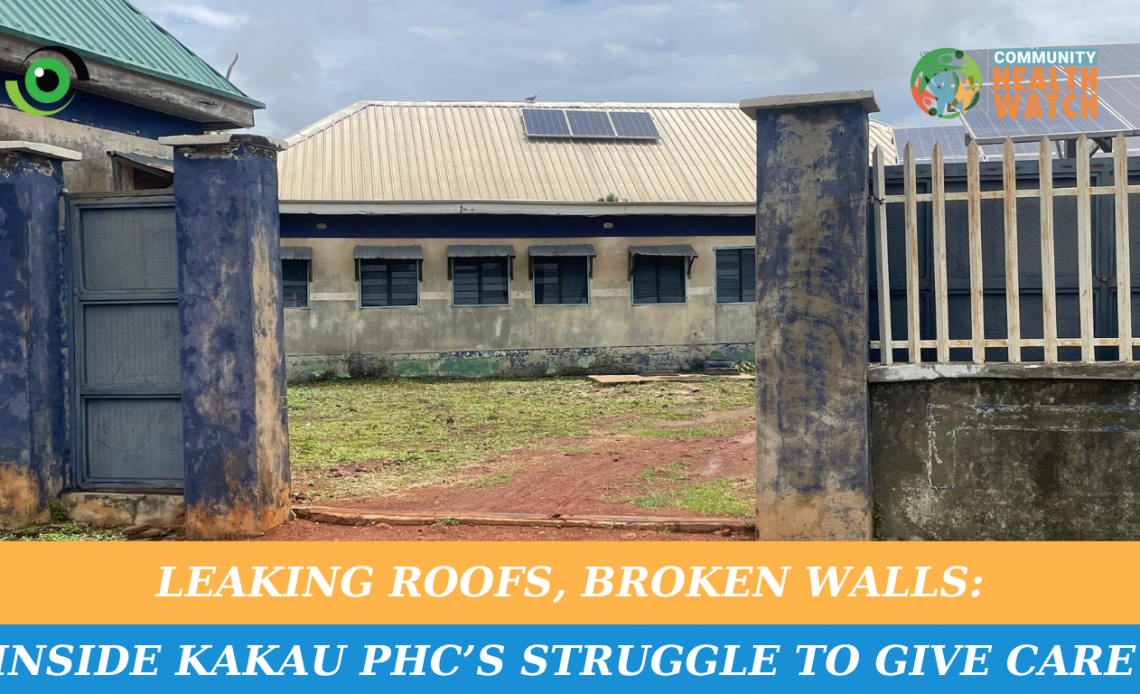By Margaret Joseph
As the rain heavily poured one afternoon in Kakau, patients huddled together in corners, clutching their children and belongings, while water dripped steadily through the ceiling onto medical records and benches. For a facility meant to heal, the primary healthcare in Kakau (PHC Kakau) has itself become a patient in dire need of urgent care.
PHC Kakau, a Level 2 Primary Health Care facility in Chikun Local Government Area (LGA) of Kaduna State, is one of the Basic Health Care Provision Fund (BHCPF) focal facilities. It is expected to deliver quality and affordable care to hundreds of patients from surrounding villages, however, on a typical day, dozens of people rely on the centre for antenatal care, immunisation, and treatment of common illnesses meet the crumbling infrastructure, leaking roofs, broken louvres, and unsafe waste disposal make accessing care uncomfortable and unsafe, especially during the rainy season.

For many pregnant women who walk long distances to the facility, the journey ends in overcrowded wards and an environment unfit for healing. “In almost all the units, the roof is leaking, damaging vital documents,” explained Nurse Florence Saleh, the officer in charge. “Rainwater seeps through the walls, and the pit we use for waste disposal poses serious risks to staff and patients.”
Community leader, Mr Aliyu Yahaya, shared another troubling reality. “When pregnant women in active labour come at night, there is often no one to attend to them. Insecurity prevents staff from staying overnight, so patients are left stranded. Thankfully, we are working toward resolving this issue and reinstating [staff] night shifts.”

Despite being a BHCPF focal facility, PHC Kakau struggles to meet its mandate. Overcrowding, lack of secure storage for medicines, and exposure to health hazards highlight systemic gaps. These issues directly undermine Nigeria’s Health Sector Renewal Plan (2023–2027), which prioritises revitalising PHCs to deliver equitable and quality healthcare.
Addressing PHC Kakau’s challenges requires urgent investment in renovations, spatial expansion, and secure staff accommodation. Without these, the community will continue to face preventable risks in maternal and child health.

Image credit: Nigeria Health Watch
Stakeholders must act now by
- Revitalising and improving infrastructure,
- Strengthening security, and
- Investing in safe waste management systems to ensure no mother or child in Kakau is left behind.
“Facilities like Kakau carry the burden of high patient demand with limited space and staff,” Saleh explained. “When infrastructure fails, health-seeking behaviour drops, and more women resort to unsafe alternatives such as home delivery [with untrained attendants]”




Brilliant piece. Thought provoking and a call to action.